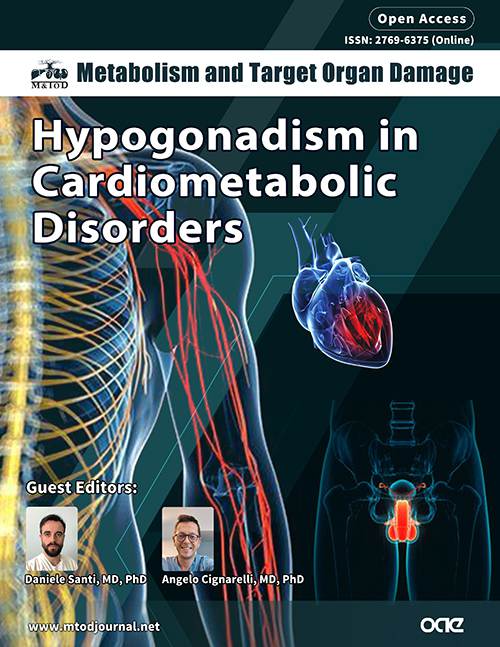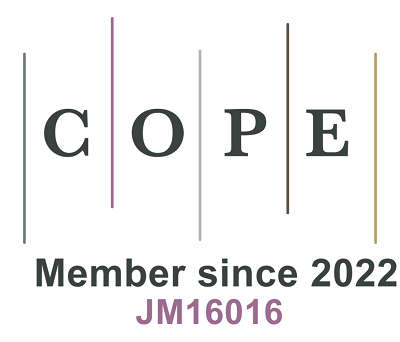
Topic: Hypogonadism in Cardiometabolic Disorders
A Special Issue of Metabolism and Target Organ Damage
ISSN 2769-6375 (Online)
Submission deadline: 31 May 2024
Guest Editor(s)
Daniele Santi, MD, PhD
Unit of Endocrinology, Department of Medical Specialties, Azienda Ospedaliero-Universitaria of Modena, Ospedale Civile of Baggiovara, Department of Biomedical, Metabolic and Neural Sciences, University of Modena and Reggio Emilia, Italy.
Special Issue Introduction
Hypogonadism identifies a clinical condition characterized by the impairment of gonadal function in both sexes, generally due to a partial or total breakdown of the cross-communication between and/or within the hypothalamus, pituitary and gonads. Hypogonadism is largely suspected to be related to several systemic diseases. Whether the systemic illnesses cause real hypogonadism or whether the find of gonadal dysfunction represents an epiphenomenon of the primary systemic disease remains far to be completely elucidated.
This Special Issue is designed to highlight the relationship between the most common chronic systemic diseases and hypogonadism in both males and females. Following topics will be discussed in this issue:
● Hypogonadism in NAFLD
● Hypogonadism in chronic kidney disease
● Hypogonadism in chronic hypoxia
● Hypogonadism in iron overload disease
● Hypogonadism in diabetes mellitus
● Hypogonadism in overweight and obesity
● Hypogonadism in cardiovascular diseases
etc.
This Special Issue is designed to highlight the relationship between the most common chronic systemic diseases and hypogonadism in both males and females. Following topics will be discussed in this issue:
● Hypogonadism in NAFLD
● Hypogonadism in chronic kidney disease
● Hypogonadism in chronic hypoxia
● Hypogonadism in iron overload disease
● Hypogonadism in diabetes mellitus
● Hypogonadism in overweight and obesity
● Hypogonadism in cardiovascular diseases
etc.
Submission Deadline
31 May 2024
Submission Information
For Author Instructions, please refer to https://www.oaepublish.com/mtod/author_instructions
For Online Submission, please login at https://oaemesas.com/login?JournalId=mtod&SpecialIssueId=mtod211116
Submission Deadline: 31 May 2024
Contacts: Doreen Deng, Managing Editor, editorialoffice@mtodjournal.net
Jimmy Yin, Science Editor, jimmy@mtodjournal.net






